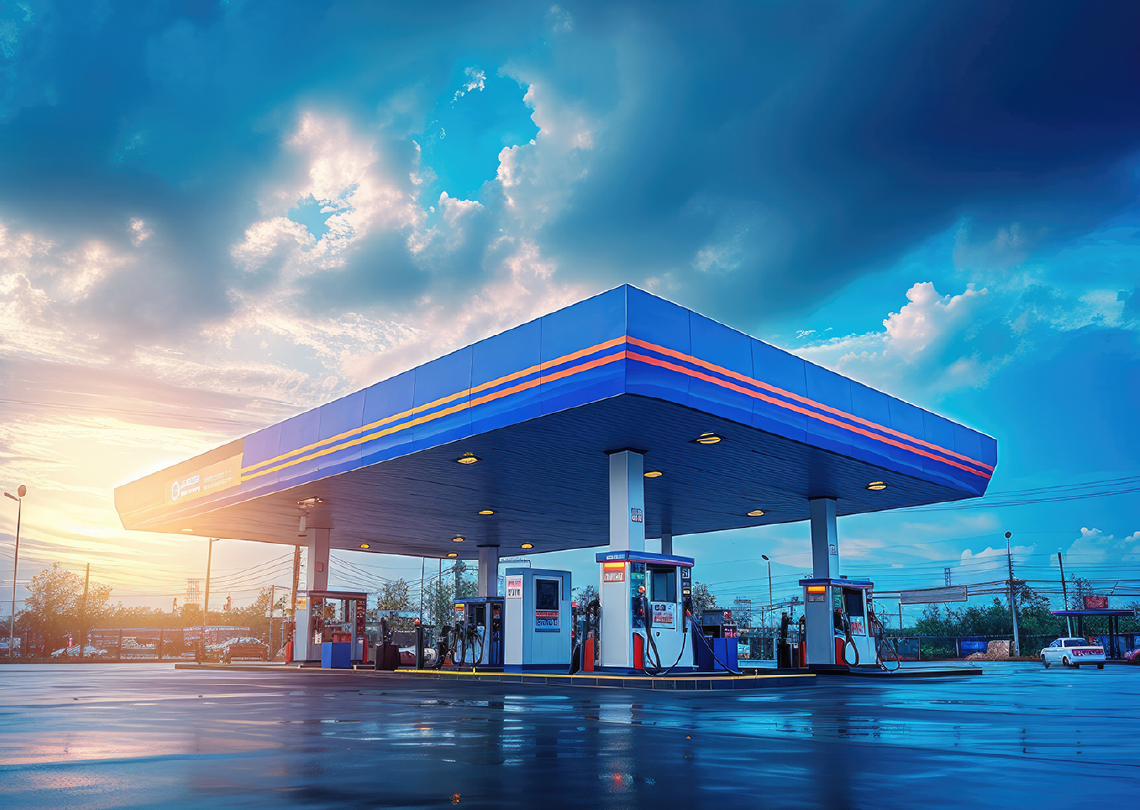Building New Capabilities in Fuel Retail Powered by Cash Automation

‘In some ways, the dramatic shifts experienced in 2020 as everyday life changed significantly have given fuel retailers a preview of the likely impact of the energy transition in years to come.’
McKinsey & Company: Fuel retail in the age of new mobility 2021
A Challenging Economic Landscape for Fuel Retailers
The urgency for Petrol Stations to adapt to changing market conditions is real. Shrinking profit margins and increasing competition for real estate across the globe means that service stations cannot survive by just providing fuel alone. Home working, a necessity during the COVID pandemic, is now more accepted and it is not clear that fuel demand will regain pre-pandemic levels. At the same time, the global movement towards a carbon-neutral economy is growing and indicates the energy transition predicted in the medium and long term.
In this challenging economic landscape fuel retailers need to stay competitive by diversifying and finding a more efficient way to operate. This will mean moving from a vehicle-centric business model to a customer-centric one and building strategic partnerships to deliver new products and services.
Creating a Customer-Centric Business Model
For some, this re-modelling is already advanced. BP has recently announced that in the UK & Ireland, 50% of customers are now stopping for food not fuel. Shell in Germany partnered with Postbank several years ago now to provide banking services for customers within 1300 petrol stations. They utilise a cash recycling device behind the counter instead of a regular ATM, providing customers with a more flexible withdrawal, deposit and exchange service. Other partnerships include one with Amazon to create a network of pick-up locations and with Allego, a leading EV charging station provider in Europe, on deploying fast stations at select service stations.
The good news for fuel retailers is that their physical network is perfectly placed to create a compelling convenient value proposition to attract consumers. Today, consumers are looking for convenience and to save time. If they can fulfil more than one task in a single location then this destination becomes more attractive. Picking up groceries on the way back from work. Picking up a delivery from a click and collect facility. Grabbing a coffee, withdrawing cash or having a meal whilst they re-charge their vehicle.
‘the decline in the fuel retail value pool is expected to be offset by gains in nonfuel retail, with the global forecourt value pool increasing from $22 billion in 2019 to $30 billion in 2030’
McKinsey & Company: Fuel retail in the age of new mobility 2021
Operational Efficiencies are Key
However, these additional services need to be managed and resourced. Additional services may attract consumers but this positive can become a negative if the experience involves long queues to pay and overloaded staff who cannot provide a great service.
Cash automation technology is one tool that can help fuel retailers manage this operational challenge. Reducing the time taken to process and manage cash on the premises frees up valuable staff resource to spend more time on customer service. Self Check-out and Kiosk solutions can help to manage queues, a key pain point for consumers, at the point of sale. In Ireland for example, at a Maxol fuel station, they have achieved significant gains in its
VIVOXTRA retail operations through cash automation at their points-of-sale and in their back office.
A Glimpse at the Future
A truly impressive example of what fuel retailers can achieve can be seen in a fuel station built by Imoba, called Pumpa. It opened in the Czech Republic in December 2021. This state-of-the-art build has been re-modelled to benefit not only car users, but also the local community. It provides electric car charging and a spectacular restaurant and bakery that can be accessed via the main road and by the village that sits behind it.
The building itself also acts as a sound barrier to benefit local residents. To manage the restaurant and bakery functions, cash automation has been installed at the point-of-sale payment stations.
As fuel retailers look to the future, they need to consider additional services they can provide to attract customers and the tools to help deliver them. Automation can positively impact the customer, staff and the operational efficiency of a fuel retail station.